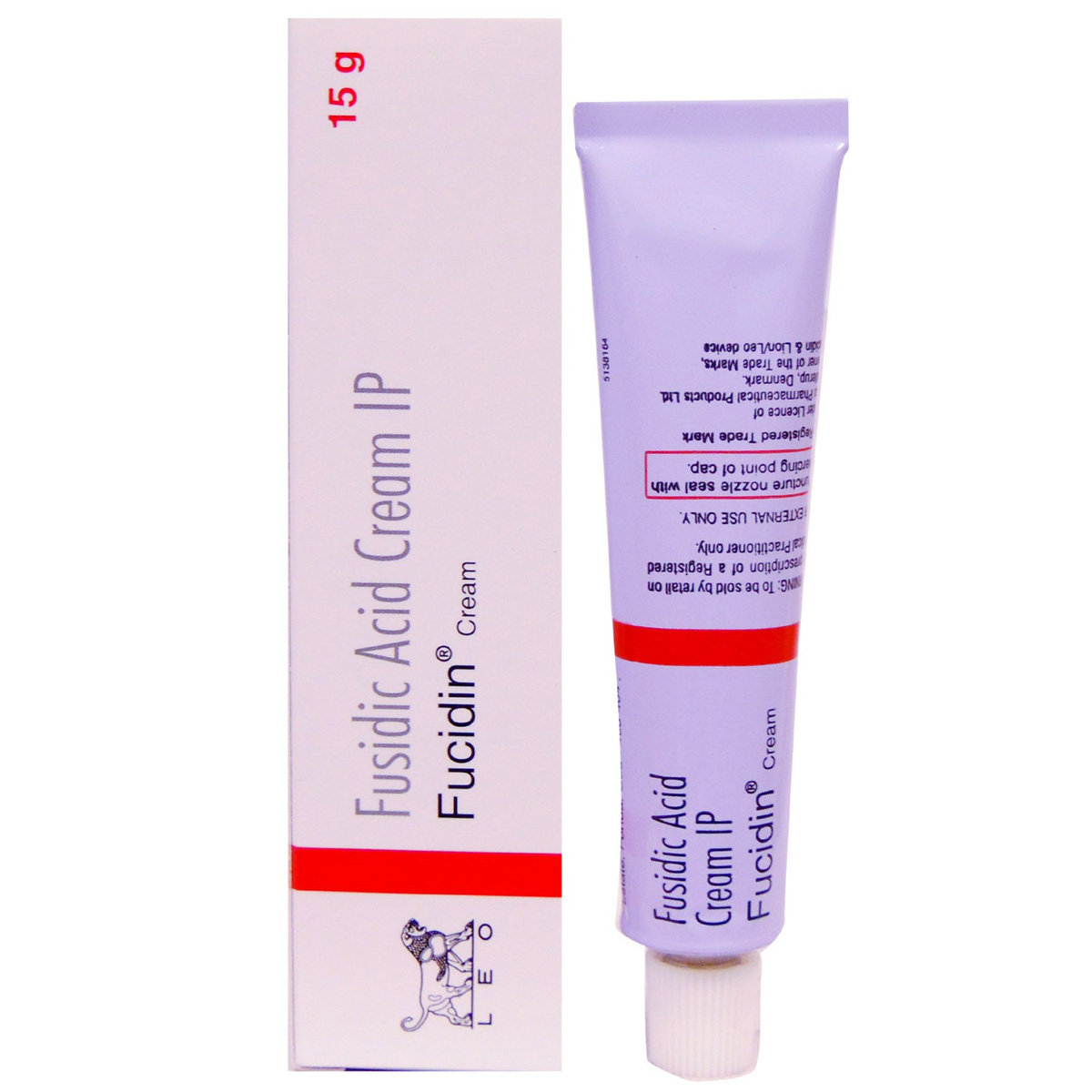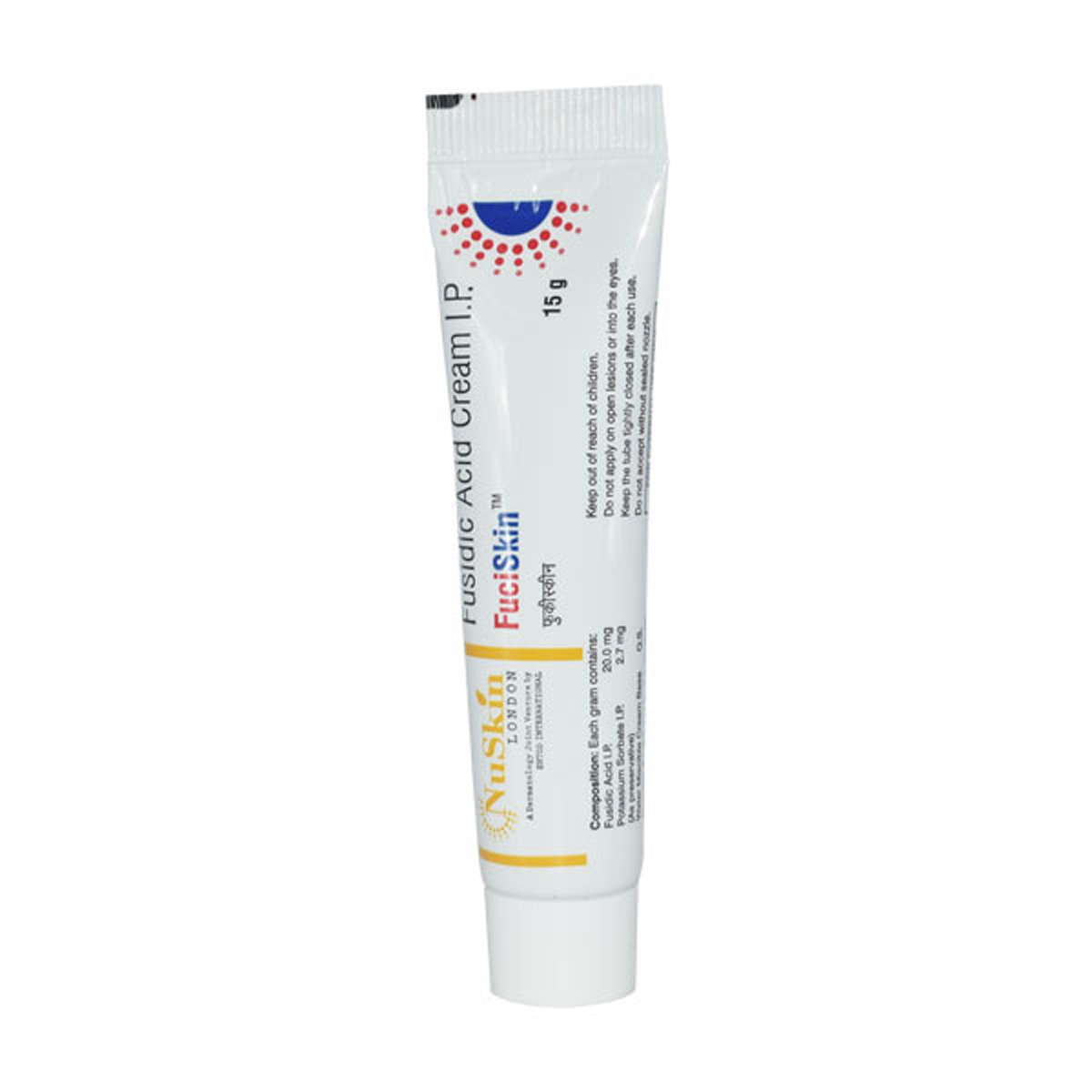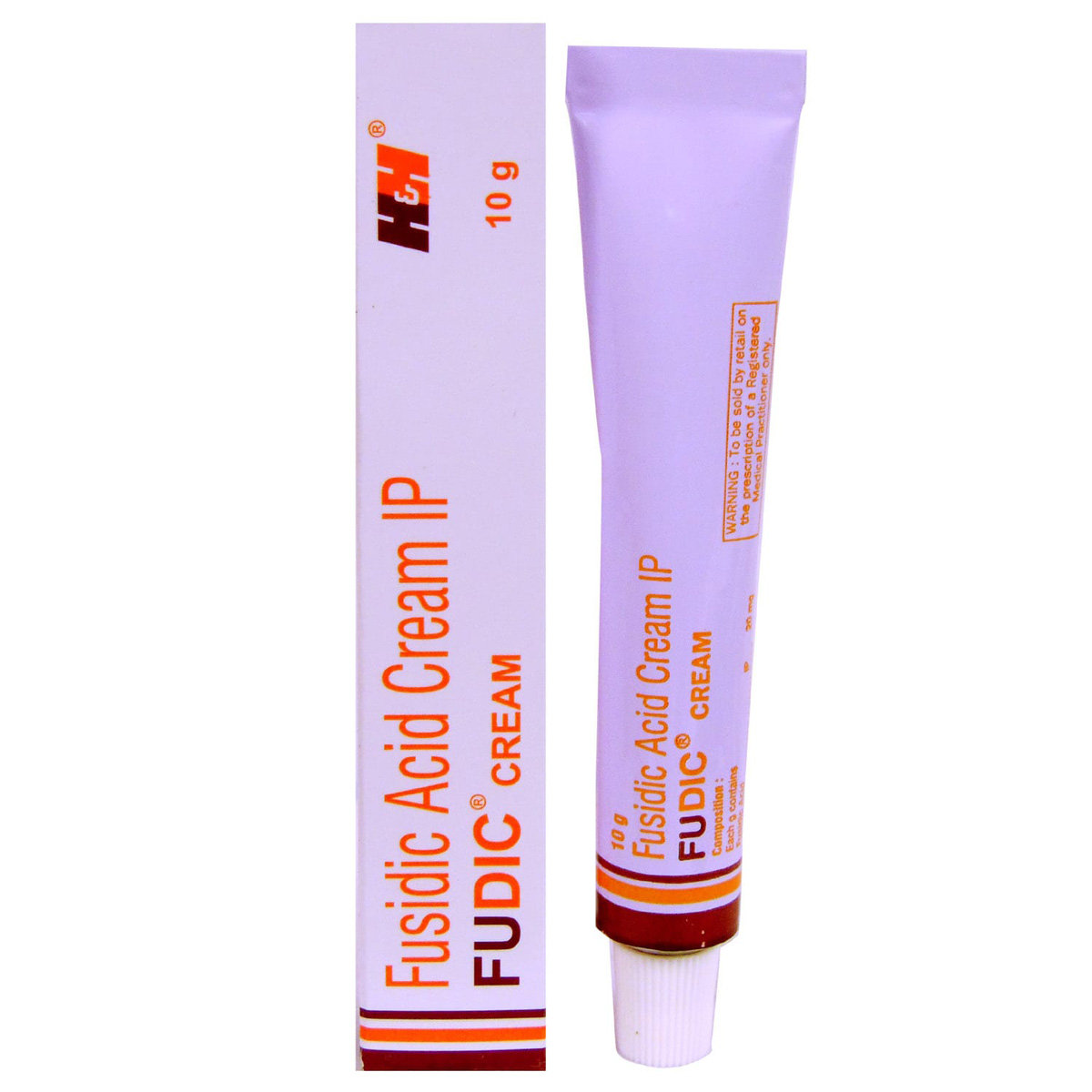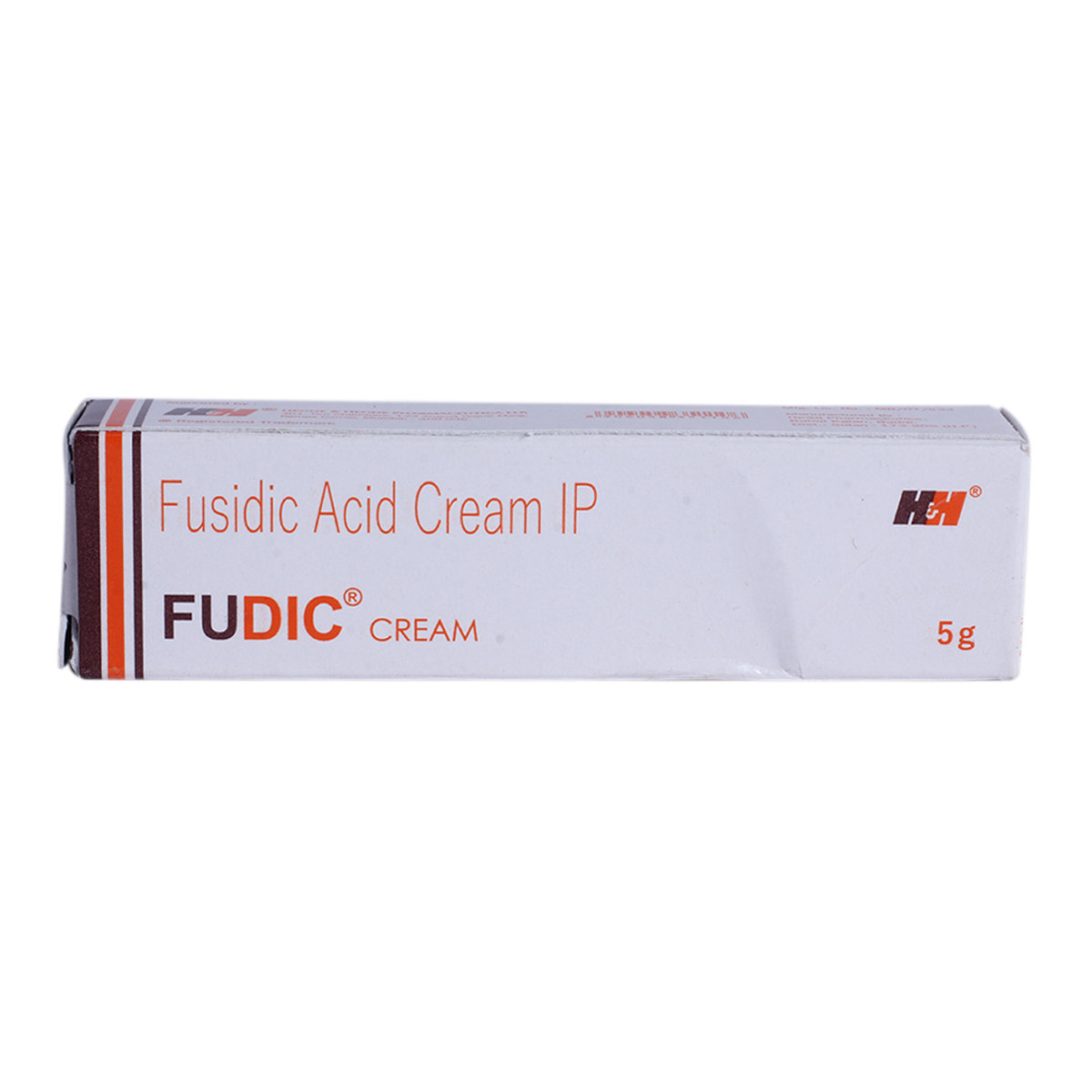Fusidic Acid
About Fusidic Acid
Fusidic Acid belongs to a class of drugs called antibiotics used to treat infections of the skin such as impetigo (a weeping, crusty and swollen patch of skin), cellulitis (swelling, redness, and pain in the infected area), infected cuts, burns, wounds, grazes, abrasions, ulcers, boils, abscesses, spots, carbuncles (cluster of boils), infected eczema and infected contact dermatitis (inflammation of the skin).
Fusidic Acid contains Fusidic acid, an antibiotic that works by inhibiting the production of essential proteins that are necessary for bacteria to grow and multiply. Thereby, it stops the growth of bacteria without killing them directly. Then the bacteria eventually die, or the immune system destroys them and clears the infection.
Fusidic Acid is for external use only. Use Fusidic Acid as prescribed by your doctor. You are advised to use Fusidic Acid for as long as your doctor has prescribed it based on your medical condition. In some cases, you may experience irritation or itching at the site of the application. Most of these side effects of Fusidic Acid do not require medical attention and gradually resolve over time. However, if the side effects persist or worsen, please consult your doctor.
If you are allergic to fusidic acid, other topical antibiotics, or any other ingredients, do not use Fusidic Acid. Avoid smoking or going near naked flames as the fabric (bedding, clothing, dressings) that is in contact with Fusidic Acid may catch fire and burn easily. If you are pregnant or breastfeeding, please inform your doctor before using Fusidic Acid. Do not apply Fusidic Acid in large amounts or use for a long time than prescribed as it does not give quick or better results but increases the risk of side effects, antibiotic resistance and makes skin more sensitive to Fusidic Acid.
Uses of Fusidic Acid
Medicinal Benefits
Fusidic Acid is an antibiotic used to treat infections of the skin such as impetigo (a weeping, crusty and swollen patch of skin), cellulitis (swelling, redness, and pain in the infected area), infected cuts, burns, wounds, grazes, abrasions, ulcers, boils, abscesses, spots, carbuncles (cluster of boils), infected eczema and infected contact dermatitis (inflammation of the skin). Fusidic Acid works by inhibiting the production of essential proteins that are necessary for bacteria to grow, and multiply. Thereby, it stops the growth of bacteria without killing them directly. Then the bacteria eventually die, or the immune system destroys them and clears the infection. Also, Fusidic Acid is used to treat folliculitis (inflammation of one or more hair follicles), paronychia (infection of the tissue surrounding a fingernail or toenail), erythrasma (infection with brown, scaly skin patches, especially in the folds of the body) and sycosis barbae (infection of the bearded skin).
Directions for Use
Storage
Side Effects of Fusidic Acid
- Irritation or itching at the site of the application
Drug Warnings
If you are allergic to fusidic acid, other topical antibiotics or any other ingredients, do not use Fusidic Acid. Avoid smoking or going near naked flames as the fabric (bedding, clothing, dressings) that is in contact with Fusidic Acid may catch fire and burn easily which is a serious fire hazard. If you are pregnant or breastfeeding, please inform your doctor before using Fusidic Acid. Do not apply Fusidic Acid in large amounts or use for a long time than prescribed as it does not give quick or better results but increases the risk of side effects, antibiotic resistance and makes skin more sensitive to Fusidic Acid.
Drug Interactions
Drug-Drug Interaction: Inform your doctor if you are taking any other medicines with or without prescription and herbal medicines.
Drug-Food Interaction: No interactions found.
Drug-Disease Interaction: No interactions found.
Drug-Drug Interactions Checker List:
Safety Advice

Alcohol
cautionInteraction of alcohol with Fusidic Acid is unknown. Please consult a doctor before consuming alcohol while using Fusidic Acid.

Pregnancy
cautionPlease consult your doctor. Fusidic Acid is given to pregnant women only if the doctor thinks the benefits outweigh the risks.

Breast Feeding
cautionDo not apply Fusidic Acid on the breast. However, if you have any concerns regarding the use of Fusidic Acid if you are a breastfeeding mother, please consult a doctor.

Driving
safe if prescribedFusidic Acid usually does not affect your ability to drive or operate machinery.

Liver
safe if prescribedIf you have any concerns regarding use of Fusidic Acid in patients with liver problems, please consult a doctor.

Kidney
safe if prescribedIf you have any concerns regarding use of Fusidic Acid in patients with kidney problems, please consult a doctor.

Children
cautionFusidic Acid should be used with caution in children and in doses as prescribed by a doctor only.
Habit Forming
Diet & Lifestyle Advise
- Wash your hands regularly and properly.
- Wash cuts, scrapes, wounds, or insect bites right away.
- Cover any skin infections with a bandage after cleaning and drying the skin.
- Avoid skin-to-skin contact with the person having a skin infection.
- Throw away the used gloves and bandages in the garbage.
- Avoid sharing items such as towels, bar soap, razors, clothes, or toys.
- Clean any shared bedding or toys.
Special Advise
- You are advised to apply any other lotions, creams or ointments including cosmetics and moisturizers after 30 minutes of applying Fusidic Acid as using both at the same time may reduce the effectiveness of Fusidic Acid.
Patients Concern
Disease/Condition Glossary
Bacterial skin infection: It occurs when bacteria enter the body through a scratch or cut in the skin. They often begin as small, red bumps that increase in size slowly. Some bacterial infections are mild and can be treated easily with topical antibiotics, but other infections require an oral antibiotic. Different types of bacterial skin infections include impetigo, cellulitis, boils, and Hansen's disease (leprosy). Impetigo is a highly contagious skin infection that occurs as yellowish crusts on the arms, face, or legs. Cellulitis is a common bacterial skin infection that causes swelling, redness, and pain in the infected areas of the skin.
FAQs
Fusidic Acid works by inhibiting the production of essential proteins that are necessary for bacteria to grow and multiply. Thereby, it stops the growth of bacteria without killing them directly. Then the bacteria eventually die, or the immune system destroys them and clears the infection.
Fusidic Acid may be used to treat impetigo (crusty and swollen patch of skin). Fusidic Acid is an antibiotic that stops the growth of bacteria and prevents the spread of infection.
You are recommended to cover the infected skin with bandages or dressings only if advised by your doctor else it may increase the risk of side effects. In the case of babies, a nappy acts as a dressing.
You are recommended to use Fusidic Acid for as long as your doctor has prescribed it. However, if the symptoms do not improve or worsen after 1 week, stop using Fusidic Acid and consult a doctor.
No, you are not recommended to stop using Fusidic Acid without consulting your doctor as it may worsen the infection or cause recurring symptoms. Therefore, use Fusidic Acid for as long as your doctor has prescribed it, and if you experience any difficulty while using Fusidic Acid, please consult your doctor.








